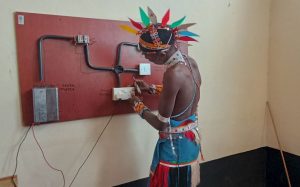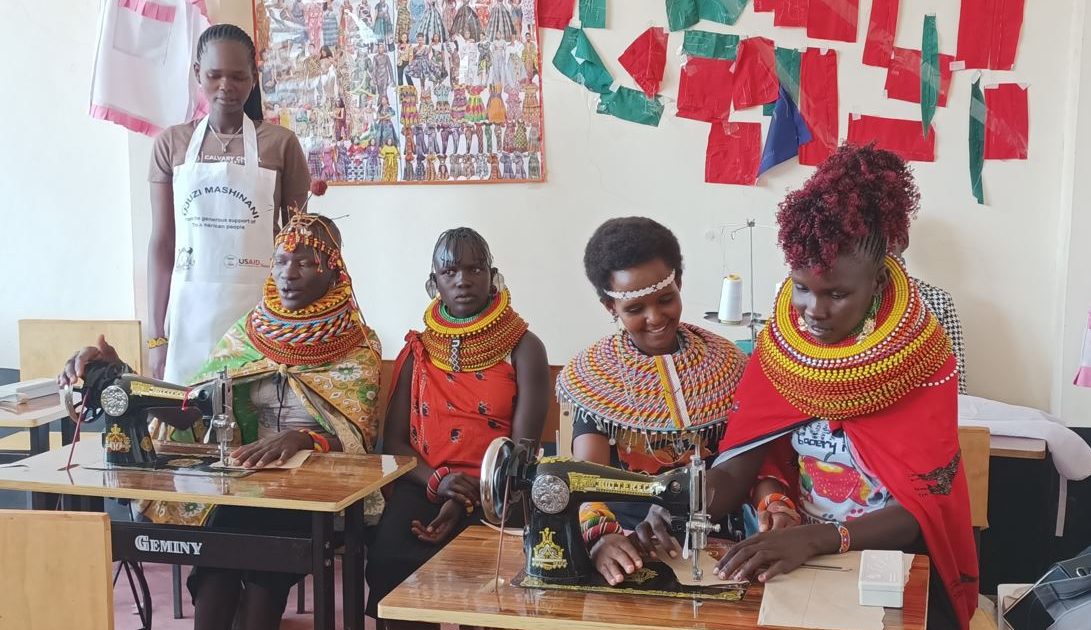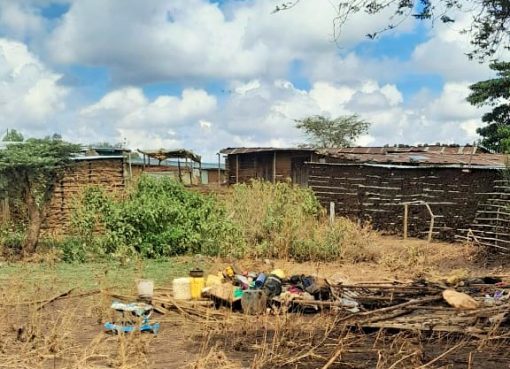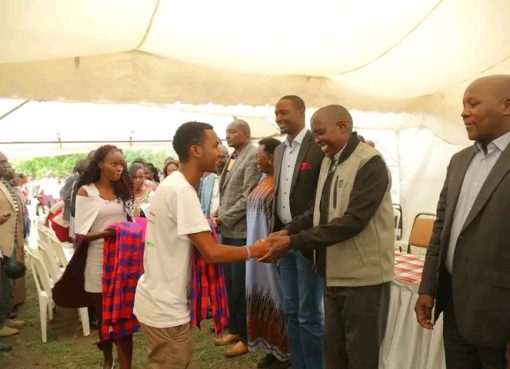USAID Nawiri has launched an education programme in Baragoi dubbed ‘Ujuzi Mashinani’ in an effort to decentralise education for out-of-school morans and teenage girls in Samburu County, which will offer courses needed in the local labour market.
Speaking during the launch of the Ujuzi Mashinani programme at the Baragoi Technical and Vocational Education Training (TVET) Centre, the programme Coordinator, Ms. Nasieku Lesouya, said that the Sh 20 million one-year programme is sponsored by USAID Nawiri in support of the county government of Samburu and the Samburu North National Government Constituency Development Fund (NG-CDF) in order to decentralise skills from urban to rural areas.
Lesouya said that Ujuzi Mashinani was informed by the labour market assessment that was carried out by USAID Nawiri, which looked at the major growth sectors in Samburu County in terms of labour demand and labour supply, and it emerged that most youths in the county lack the necessary skills required in the labour market.

“We found out that the youths in the remote parts of Samburu lack labour skills because of illiteracy and inaccessibility to learning centres since they are based in Maralal town and their parents cannot afford to educate them away from home,” Lesouya said.
“When a tender to build a classroom is given, the local youths are confined to being handymen, while masons, electricians, and plumbers come from outside Samburu County. That is why we came up with the Ujuzi Mashinani model, which focuses on decentralising skills and creating a supply of labour,” she said.
She added that the beneficiary target group is adolescent girls and young mothers, adolescent boys and young men, out-of-school pregnant and lactating mothers, or mothers with children under five years who have enrolled in one of the seven courses offered: construction and masonry, beauty and hairdressing, tailoring and dress making, electrical works, plumbing, and catering.
“We have girls between 10 to 14 years old, and their transitional pathway is to get them back to school. We also have youths 15 to 24 years old who are school dropouts and will transition to TVETs, and then we also have an older lot that have never joined school and are past TVET transition due to life demands such as parenting,” she said.
“Those will be transitioned to business skills in collaboration with the Ministry of Industrialization, Trade, and Industry and the Micro and Small Enterprise Authority and trained on sandal making and beadwork,” she added.
Chief of Party for USAID, Mr. Hassan Abdille, confirmed that 17 teachers have started teaching 239 students that have already enrolled in four pilot learning centres in Baragoi, Ngilai, Nachola, and Marti, and after they are through with their studies, they will transition into wage employment or self-employment.
“The whole concept is tailored to ensuring that there is income that accrues to these skills for the households since all beneficiaries are drawn from households that have severe acute malnutrition challenges, and given the persistent drought, we had to look for alternative sources of income and diversify livelihoods,” he said.
Abdille assured that USAID will commit an additional Sh 31.5 million to the Ujuzi Mashinani Education Model to ensure over 7,000 youths benefit from the programme, which will end in September 2024.
On his part, Samburu North MP Mr. Eli Letipila welcomed the programme, saying that it will promote peace efforts and coexistence between the communities living in Samburu North by integrating them in the classroom.
“These youths would have interacted in gun battles occasioned by cattle rustling activities, but now they are meeting in class and sharing the same learning equipment, and from now on they will know each other as classmates’ and colleagues. These are enhanced peace efforts brought to Baragoi,” Letipila said.
The MP noted that the government is in the process of equipping the TVET in Baragoi, saying that learning will continue even after the end of the Ujuzi Mashinani programme.
By Robert Githu




